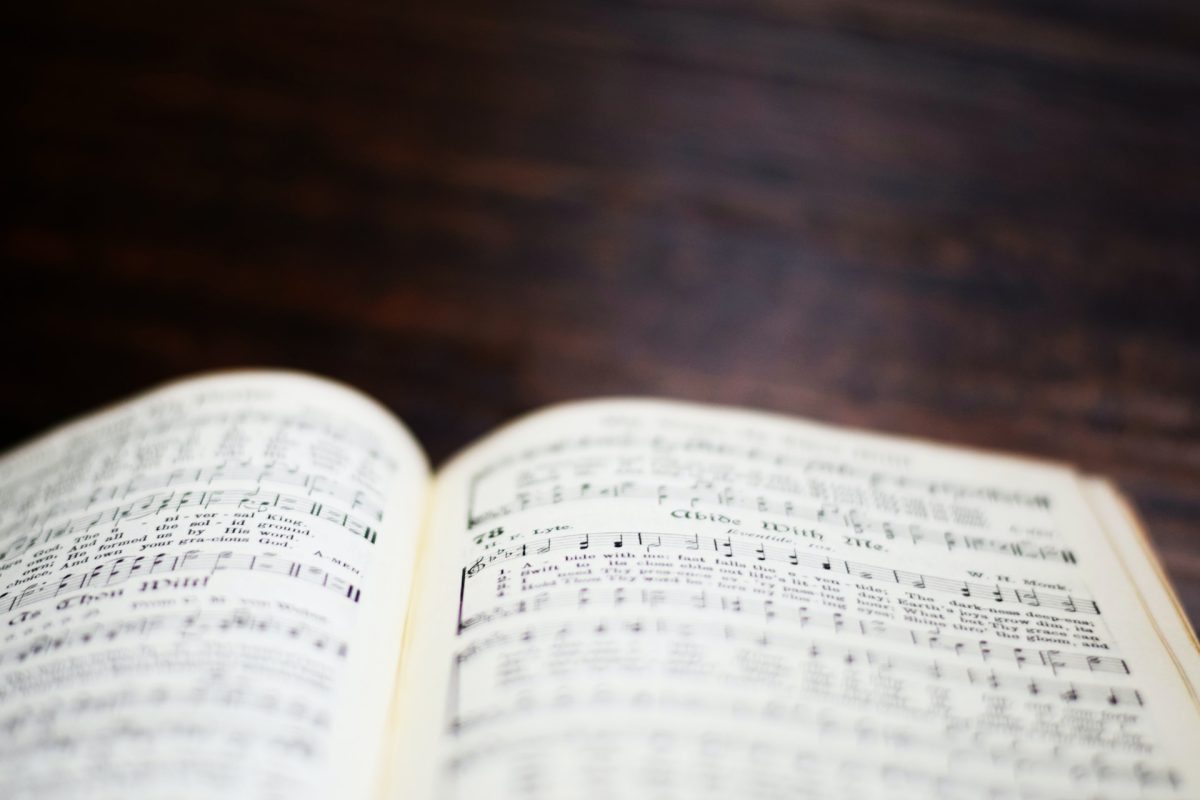Biblical principles for worship music

It is no secret that music—particularly religious music—is one of the most debated topics in Christianity. Whenever we’re faced with such a complex and difficult-to-resolve issue, it is essential to study Scripture and Ellen G. White’s writings for guiding principles on how our worship music should be.1
The topic is increasingly relevant as we approach the final crisis of this world’s history. According to Revelation 13 and 14, worship will be the focal point that will define every human being’s destiny. We will have to choose between worshipping the beast (and its image) and worshipping God. Worshipping the true God is as important as worshipping Him the right way. Could it be that even with the best intentions, by using inappropriate music many Christians are worshipping in the wrong way?
The Bible gives abundant examples of people who worshipped God and reports the reasons they did so. Based on this information, we may define worship as “the attitude of humility, reverence, honor, devotion, and adoration”2 of created beings toward their Creator, in recognition of His attributes (Ps. 99:9; Rev. 15:4) and His works of creation (Rev. 4:10; 14:7), redemption (2 Kings 17:36; Rev. 5:9), and providence (Ps. 59:16; 118:21).
Worship is a personal experience, but it is also a family and community activity. Our understanding of God determines how we approach and worship Him.3 Therefore, it is essential to know who God is according to the Bible. The divine attribute of holiness stands out as essential to God’s nature.
God’s Holiness and His People
After the fall of Adam and Eve, adoration rendered by human beings was tainted because sin had affected us all. Not so God’s angels, who have not fallen into sin.
One of the most instructive passages about celestial adoration is Isaiah 6, “the biblical key text on worship.”4 Isaiah saw the Lord sitting on His throne, surrounded by seraphim chanting, “Holy, holy, holy is the Lord of hosts; the whole earth is full of His glory!” (Isa. 6:3). The same reiteration is seen in the book of Revelation, where John saw four living creatures around the throne of God, “saying: ‘Holy, holy, holy, Lord God Almighty, who was and is and is to come!’ ” (Rev. 4:8).
The fact that God is holy requires that His children be holy too. The problem is that we are sinners by nature. When we repent from our sins, however, and confess them to God, He accepts us as His children, forgives our sins, and declares us holy, setting us apart for Him. This new status enables us, through faith in Him and by His grace, to grow in the process of sanctification, which is the work “of a lifetime”5 (Rom. 6:19, 22; 1 Thess. 4:3).
A holy God, who graciously grants a holy status to His children and commands them to grow in moral holiness throughout their lives, also requires that everything related to worship be holy, be it in private life, at home, or in the church.
The song offered by the seraphim choir (Isa. 6:3; Rev. 4:8) is a model we should follow when making music in the Lord’s presence. “Music forms a part of God’s worship in the courts above, and we should endeavor, in our songs of praise, to approach as nearly as possible to the harmony of the heavenly choirs.”6 The angels’ canticle of adoration reveals that the acknowledgment of God’s holiness is at the foundation of true worship and religious music.
God’s Holiness and Religious Music
From our understanding of the biblical concept of God’s holiness and from the writings of Ellen G. White, specific principles emerge for religious music, at a personal and corporate level.
The need to “distinguish between holy and unholy” (Lev. 10:10) in music today is more relevant than ever before. All music inherently produces in listeners an association of ideas and experiences. “Musical styles come with a cultural package. They are often associated with places, people, and actions.”7 We associate certain types of music with specific environments, attitudes, and ways of life. Therefore, “sacred music should not evoke secular associations or invite conformity to worldly behavioral patterns of thinking or acting.”8
Regarding vocal music, biblically sound lyrics are not enough for a song to be appropriate to worship the Lord. The character of the music itself has “to serve a holy purpose, to lift the thoughts to that which is pure, noble, and elevating, and to awaken in the soul devotion and gratitude to God.”9
Not all music styles fulfill this purpose, however. Musical styles were created to achieve definite purposes in specific environments. Therefore, contrary to a prevalent idea, music style is not a neutral carrier for the Christian message. “A vast body of musicological scholarship has shown that, rather than being a blank slate for injecting propositional content through sung lyrics, musical style itself communicates a specific set of ideas and values to enculturated listeners.”10 In fact, “music styles are religious-value laden—they are veritable embodiments of beliefs about reality.”11
Nevertheless, the combination of religious words with profane music styles is increasingly heard. “Unfortunately, much of today’s contemporary Christian music relies on the same flavor of background beat, instrumentation, arranging and sound as the music of the world. Yet somehow the religious lyrics are expected to turn this worldly music into a sacred song.”12 But Scripture teaches that holy things do not sanctify unholy objects; on the contrary, when these two categories come into contact, the profane contaminates the holy (Haggai 2:12, 13). The result of this combination is that the effect of the music itself, which is contrary to Christian values, completely overrides and undermines the message of the words. The most appropriate music is that in which there is a perfect matching of words and music,13 so the lyrics and music portray the same message.
Singing With Angels
There are no easy solutions to the complex issue of religious or “Christian” music and worshipful music. Limiting all religious music to traditional hymns is not the answer, because the issue is not about choosing between traditional and contemporary music. The most important thing is not the date in which a song was written, but the message it conveys in both words and music.
“The religion of Christ will refine the taste, sanctify the judgment, elevate, purify, and ennoble the soul.”14 Instead of incorporating inappropriate musical styles into our religious music, we will offer holy and uplifting music to God and those around us.
“Let us learn the song of the angels now, that we may sing it when we join their shining ranks.”15 By God’s grace, may we “be prepared to join with the worshipers in the heavenly courts above, where all is purity and perfection, where every being has perfect reverence for God and His holiness.”16
1 Abridged from Carlos A. Steger, “Music in the Presence of a Holy God: Principles for Religious Music Based on the Biblical Concept of Holiness,” Reflections, January-March 2021, https://bit.ly/PrinciplesforWorshipMusic.
2 Siegfried H. Horn, Seventh-day Adventist Bible Dictionary (Washington, D.C.: Review and Herald Pub. Assn., 1979), s.v. “Worship.”
3 Fernando Canale, “Principles of Worship and Liturgy,” Journal of the Adventist Theological Society 20, nos. 1–2 (2009): 98.
4 Lilianne Doukhan, In Tune With God (Hagerstown, Md.: Autumn House, 2010), p. 99.
5 Ellen G. White, The Acts of the Apostles (Mountain View, Calif.: Pacific Press Pub. Assn., 1911), p. 560.
6 Ellen G. White, Patriarchs and Prophets (Mountain View, Calif.: Pacific Press Pub. Assn., 1890, 1908), p. 594.
7 Doukhan, p. 71.
8 “A Seventh-day Adventist Philosophy of Music” (General Conference of Seventh-day Adventists).
9 E. G. White, Patriarchs and Prophets, p. 594.
10 Monique M. Ingalls, “Style Matters: Contemporary Worship Music and the Meaning of Popular Musical Borrowings,” Liturgy 32, no. 1 (2017): 7, 8, bit.ly/WorshipMusicStyles.
11 Wolfgang H. M. Stefani, “The Concept of God and Sacred Music Style: An Intercultural Exploration of Divine Transcendence/ Immanence as a Stylistic Determinant for Worship Music With Paradigmatic Implications for the Contemporary Christian Context” (Ph.D. thesis, School of Graduate Studies, Andrews University, 1993), p. 278, https://bit.ly/SacredMusicStyle.
12 John Thurber and Cari Haus, The Music of Heaven (Coldwater, Mich.: Remnant Publications, 2001), p. 68.
13 Austin C. Lovelace and William C. Rice, Music and Worship in the Church (New York: Abingdon Press, 1960), p. 20.
14 Ellen G. White, That I May Know Him (Washington, D.C.: Review and Herald Pub. Assn., 1964), p. 250.
15 E. G. White, Patriarchs and Prophets, p. 289.
16 Ellen G. White, Testimonies for the Church (Mountain View, Calif.: Pacific Press Pub. Assn., 1948), vol. 5, p. 500.








